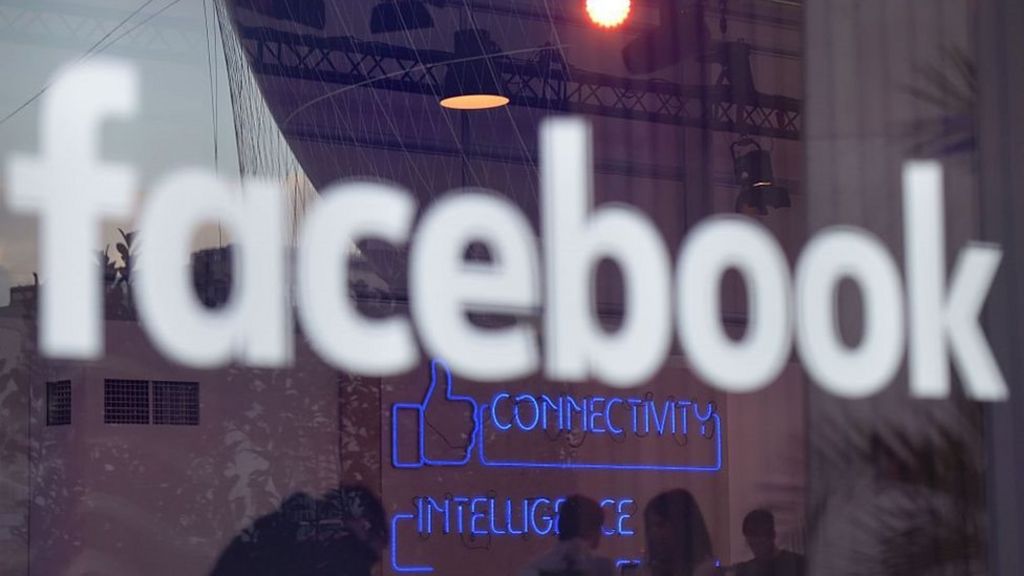Facebook's AI Wipes Islamic State And Al Qaeda Posts

 Image copyright
Getty Images
Image copyright
Getty Images
Facebook has said that efforts to use artificial intelligence and other automated techniques to delete terrorism-related posts are "bearing fruit" but more work is needed.
The firm said that 99% of the material it now removes about Al Qaeda and so-called Islamic State is first detected by itself rather than its users.
But it acknowledged that it had to do more work to identify other groups.
Founder Mark Zuckerberg first detailed his AI-based plan in February.
He said at the time that it would take "many years" to fully develop the required systems.
Auto-delete
Facebook relies on a mix of human checkers and software to confirm which posts should be removed, but it said that the task was now "primarily" being carried out by its automated systems.
It said the technologies included photo and video-matching - in which previously identified imagery used by terrorist groups is automatically detected when it is reposted.
This is made possible by the firm sharing hashes - unique codes generated from image data - with other organisations.
The "digital fingerprints" allow pictures and video clips to be quickly checked against a list of previously flagged material without the imagery itself - which takes up much more data - having to be shared.
The California-based firm also referred to text-based machine learning, in which software is trained over time to detect which posts are most likely to be of concern by analysing factors such as the frequency with which certain words and phrases appear.
Facebook said that once a piece of terror content was flagged as being such, it removed 83% of the material and any subsequently uploaded copies within an hour of them being posted.
It added that in some cases, material was now being wiped before it had ever gone live on its site.
'Further and faster'
The company said that it had focused on Al Qaeda and Isis up until now because they represented the "biggest threat globally", but cautioned that expanding the efforts to other groups was "not as simple as flipping a switch".
"A system designed to find content from one terrorist group may not work for another because of language and stylistic differences in their propaganda," wrote Monika Bickert, Facebook's global policy chief and Brian Fishman, the company's head of counter-terrorism policy.
"[But] we hope over time that we may be able to responsibly and effectively expand the use of automated systems to detect content from regional terrorist organisations too."
UK Prime Minister, Theresa May, acknowledged in September that Facebook and other tech companies had made progress in their efforts to tackle the issue, but added that they still needed to go "further and faster".
Mrs May, along with several other European leaders, has said that she wanted terrorist-related material to be erased within two hours of being posted.
It has been hinted that failure to comply could lead to hefty financial penalties.
In October, a new German law came into force that allows its government to fine Facebook and other social media firms with more than two million local users up to 50 million euros ($59.3m; £44.4m) if they fail to remove "manifestly unlawful" posts within 24 hours.
Analysis: Gordon Corera, Security correspondent
How far can the automation tech that companies have built their businesses on be used to do more about extreme content?
Facebook says that its work to take down extremist content is becoming more systematised than in the past - working with partners externally to spot content and using multiple techniques internally to take it down.
Government in the UK will still press for more - not just taking material down quickly but also finding ways to identify people involved with terrorism and preventing them from uploading in the first place.
Facebook says it does look not just at content but the behaviour behind certain accounts to identify those posting material it does not want on the platform.
But this is a cat and mouse game in which those seeking to take advantage of the reach of social media platforms will always look for new ways of getting round these techniques.
And some types of content - such as hate speech - are harder to spot with automation and often require human review to understand the context.
From Chip War To Cloud War: The Next Frontier In Global Tech Competition
The global chip war, characterized by intense competition among nations and corporations for supremacy in semiconductor ... Read more
The High Stakes Of Tech Regulation: Security Risks And Market Dynamics
The influence of tech giants in the global economy continues to grow, raising crucial questions about how to balance sec... Read more
The Tyranny Of Instagram Interiors: Why It's Time To Break Free From Algorithm-Driven Aesthetics
Instagram has become a dominant force in shaping interior design trends, offering a seemingly endless stream of inspirat... Read more
The Data Crunch In AI: Strategies For Sustainability
Exploring solutions to the imminent exhaustion of internet data for AI training.As the artificial intelligence (AI) indu... Read more
Google Abandons Four-Year Effort To Remove Cookies From Chrome Browser
After four years of dedicated effort, Google has decided to abandon its plan to remove third-party cookies from its Chro... Read more
LinkedIn Embraces AI And Gamification To Drive User Engagement And Revenue
In an effort to tackle slowing revenue growth and enhance user engagement, LinkedIn is turning to artificial intelligenc... Read more

